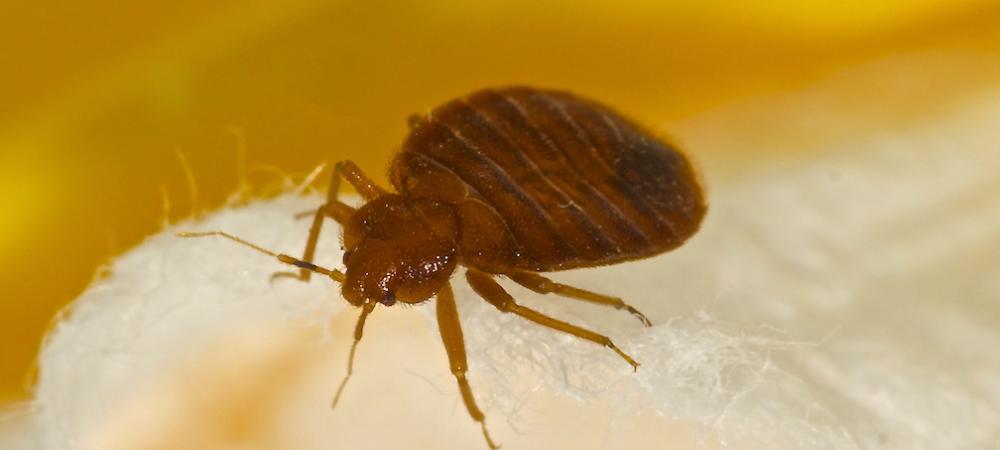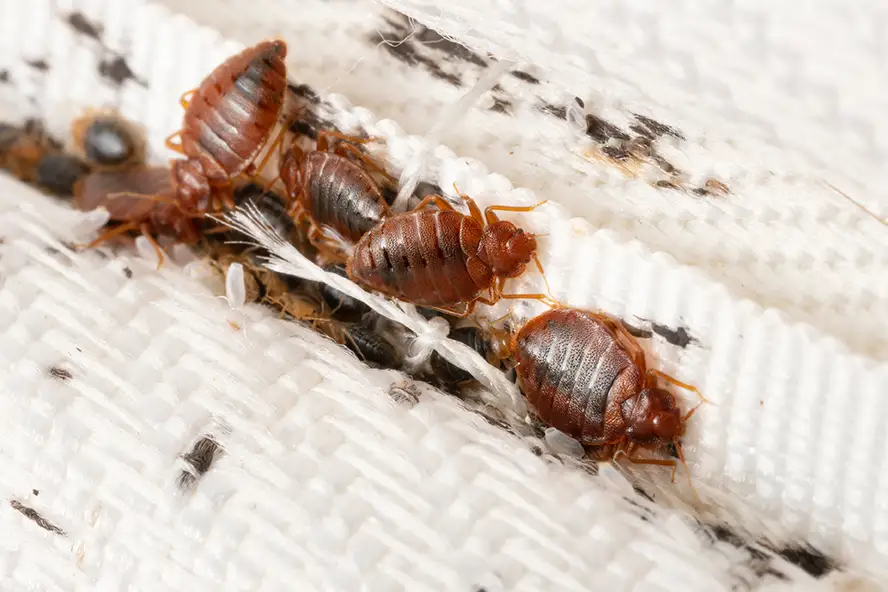How Do Bed Bugs Spread?

Bed bugs are becoming an increasing concern for homeowners across Illinois. Whether you live in the bustling city of Chicago or the quieter suburbs, the spread of these pesky critters is something to keep on your radar. Illinois' unique climate, combined with its vibrant urban areas, makes it a perfect environment for bed bugs to thrive and spread. In this detailed blog, we will explore how bed bugs spread, the factors that contribute to their growth in Illinois, and the best steps homeowners can take to prevent or eliminate an infestation.
Bed Bugs In Illinois
Illinois experiences a diverse climate, which plays a significant role in the behavior of bed bugs. The state has hot, humid summers and cold, dry winters.
- During the warmer months, bed bugs are more active, and their populations can grow rapidly. They thrive in temperatures between 70°F and 80°F, which is common in many indoor environments throughout the summer. The humidity of the summer months also makes it easier for bed bugs to survive and reproduce, making infestations more likely to occur in places such as apartments, hotels, and multi-family dwellings.
- During the colder winter months, bed bugs tend to become less active, but they do not die off. Instead, they enter a dormant state, surviving in homes, apartments, and businesses where the temperature remains consistent.
This means that even in the harsh Illinois winters, bed bugs can continue to spread indoors, making winter a time when they’re still a threat, though they may be less visible.
How Bed Bugs Spread
Bed bugs are expert hitchhikers, and their spread is often difficult to track. They don’t fly or jump, but they move by attaching themselves to people or objects. Below are the primary ways bed bugs spread throughout Illinois homes and communities:
1. Travel and Public Transportation
Illinois’ large cities, such as Chicago, Peoria, and Springfield, have a lot of tourist traffic, public transportation, and travelers coming and going, creating ideal conditions for bed bugs to hitch rides. Hotels, motels, Airbnbs, and public transportation hubs are high-risk areas for bed bug infestations. Bed bugs can hide in luggage, clothing, and personal belongings, which is why it's essential to check your items carefully when you return home from traveling. Illinois’ busy airports and train stations are often major transit points for these pests.
If you’ve stayed in a hotel or motel in Illinois, inspect your luggage and clothing before leaving the premises. If you're traveling during the warmer months, the risk of picking up bed bugs is higher, as they are most active during this time.
2. Shared Living Spaces
Illinois has many multi-unit buildings—whether it’s apartment complexes, condos, or townhouses—that provide ample opportunity for bed bugs to spread. Because bed bugs can travel through cracks in walls, floors, ceilings, and even electrical outlets, they can easily move from one unit to another. In older buildings, this is an even greater concern, as the walls and foundation may have more gaps for bed bugs to travel through.
If your neighbor has a bed bug infestation, there's a strong chance that the pests could make their way into your home, especially if the building is not properly sealed. This is one reason why it's important for everyone in a multi-unit dwelling to be vigilant about checking for bed bugs, as early detection can help prevent widespread issues.
3. Secondhand Furniture, Clothing, and Household Items
Illinois residents, like many others, love the deals they can find at thrift stores, yard sales, or online marketplaces such as Craigslist or Facebook Marketplace. Unfortunately, secondhand furniture and clothing can often harbor bed bugs, making these items a potential source of an infestation. Bed bugs are small and adept at hiding in cracks, seams, and upholstery, making it difficult to spot them before they enter your home.
Even seemingly clean or new items can carry bed bugs, so it’s important to be cautious when buying used furniture or clothing. Inspect items thoroughly before bringing them inside, and consider using heat treatment or professional pest control services for any secondhand items you are unsure about.
4. Visitors and Neighbors
Bed bugs can also spread through visitors and neighbors. If you have family, friends, or neighbors who live in an area with an active bed bug problem, there's a risk that they could unknowingly bring the pests into your home. Bed bugs can hitch a ride on clothing, bags, and other personal belongings. When hosting visitors or traveling to someone else’s home, it’s important to be aware of the potential for cross-contamination.
For example, if your neighbor lives in an apartment building with a confirmed bed bug infestation, it’s wise to inspect your own home for any signs of the pests regularly.
5. Luggage and Travel Gear
Traveling is one of the primary ways bed bugs spread, and Illinois is no exception. Airports, bus stations, and train stations are hotspots for bed bugs, as travelers from all over the world pass through. When people travel, they bring luggage, backpacks, and clothing that can unknowingly carry bed bugs. Once home, bed bugs can spread to various parts of the house, such as the bedroom, living room, or even the car.
Luggage, travel bags, and even shoes can be carriers of bed bugs. If you're returning from a trip, carefully inspect your luggage, clothes, and travel items before bringing them indoors. Wash your clothes in hot water, and dry them on high heat to kill any potential bugs. You can also vacuum your suitcase and spray it with an insecticide designed to eliminate bed bugs.

Preventing Bed Bug Spread To Your Home
Now that we know how bed bugs spread in Illinois, let’s look at what you can do to prevent an infestation:
-
Be Proactive About Inspections
Regularly inspect your home, especially the areas where bed bugs are most likely to hide, such as mattresses, box springs, and cracks in walls or furniture. Use a flashlight and magnifying glass to help spot the tiny insects. If you notice signs like small brown spots, blood stains, or the bugs themselves, don’t hesitate to call a pest control professional immediately. -
Seal Cracks and Gaps in Your Home
In older Illinois homes or multi-unit buildings, bed bugs can travel through gaps in walls, ceilings, and floors. Sealing cracks and crevices around windows, doors, and baseboards can help prevent the pests from gaining access to your living spaces. -
Be Cautious with Secondhand Items
When purchasing secondhand items like furniture or clothing, inspect them carefully for any signs of bed bugs. If possible, use heat treatments to kill any potential pests before bringing items inside. If you’re unsure about an item, consider leaving it behind or having it professionally inspected for peace of mind. -
Use Bed Bug Covers for Mattresses
Investing in high-quality bed bug-proof mattress and box spring covers is one of the most effective ways to protect your home. These covers trap any existing bed bugs and prevent new ones from entering. -
Call the Professionals
If you suspect that your home has been infested with bed bugs, don't wait. Contact a local bed bug control professional who is experienced in dealing with bed bugs. They can assess the situation, recommend a treatment plan, and help prevent further spread.
Bed bugs are a growing concern for homeowners in Illinois, and understanding how they spread is crucial for preventing an infestation. Whether it’s through travel, secondhand items, or shared living spaces, bed bugs can easily make their way into your home. By staying vigilant, inspecting your living environment regularly, and taking preventive measures, you can reduce the chances of an infestation. If you do encounter bed bugs, contacting your local professional pest control service at Crist Termite & Pest Solutions, Inc is your best line of defense to keep your home pest-free. Contact our team today!
